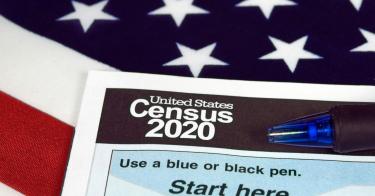Liberal activists understand the importance of manipulating the census to advance their progressive causes and have long made clear they will use Congress and the courts to impose their will on the administration. They could get their way on this issue. They are smart and have been at this game a long time. They figure that if they get something in “must pass” legislation, they can convince enough Republican lawmakers who do not get why the census matters so much. There are reports that Republican lawmakers may include what liberal groups want on the census in the omnibus spending bill currently being negotiated behind closed doors.
Liberal groups focused on ethnicity, such as the National Association of Latino Elected and Appointed Officials, Asian Americans Advancing Justice, Mexican American Legal Defense and Educational Fund, National Urban League, and others want several things, the most important of which is to remove a question about citizenship that the administration wants to reintroduce in the 2020 census. These organizations have strong liberal allies in Congress who also understand the salience of the census.
Bloomberg Government last month sent an email saying that leaders in Congress are discussing a provision to the planned citizenship question “as part of talks on border wall funding.” Pressure on this has been sustained. Bloomberg Government previously reported that the very liberal Representative José Serranoof New York has pushed for a key measure in funding legislation to “block the Trump administration from inserting a question” about citizenship status on the 2020 census.
The courts have already engaged on the citizenship question because of several lawsuits brought by liberal attorneys general. Now comes the play in Congress. This was preordained. Much earlier this year, Arturo Vargas, who is an executive director at the National Association of Latino Elected and Appointed Officials, ominously warned his group “will stand alongside partners and colleagues from across the country as the battle to reverse this costly course of action heats up in both Congress and the courts.”
This is how liberal organizations have come to dominate the census process for the past 40 years. Were the groups to get their way on the citizenship question, they would move ahead on other priorities such as the creation of yet another panethnic group in the census, this one for residents of Middle East and North African origin. A third priority is combining the two census questions on race and ethnicity into one, thereby elevating the hispanic group to a category on a par with races.
Representatives of these groups, along with liberal professors and other stakeholders, form the National Advisory Committee on Race, Ethnic and Other Populations, a platform they use to control the creation of group identities at the Census Bureau. The committee voted unanimously to send to Congress and the White House a statement that read partly, “There is no value to adding a citizenship question to the United States decennial census and doing so will undermine the very purpose of the census to provide a complete and accurate count.” The committee also voted unanimously to “reiterate our support for the combined race and hispanic origin question” with the Middle East and North African option.
These kinds of issues matter at the nitty gritty level but also at an altitude of 30,000 feet. On the blocking and tackling of politics, information on citizenship collected by the decennial census can be used by states to redistrict electoral seats on the basis of citizenship or voter eligibility. This falls under the Constitution. As Supreme Court Justice Clarence Thomas wrote in his concurring opinion in Evenwel v. Abbott, “The Constitution does not prescribe any one basis for apportionment within states.”
Basing voting districts on total population dilutes the vote of citizens. The vote of a citizen in a district with many noncitizens will count for more than the vote of a citizen in a district with very few noncitizens. The Supreme Court again said, this time in the decision in Reynolds v. Sims, “To the extent that a citizen’s right to vote is debased, he is that much less a citizen.” At 30,000 feet, when taken together, what the liberal priorities for the census do is perpetuate the breakup of the United States into balkanized ethnic and racial groups and move us further away from the idea of a colorblind America where what matters is civic citizenship.
As Manhattan Institute fellow James Piereson wrote earlier this year, “On a deeper level, the controversy over the census raises questions about what the United States is or should be as a nation state in the modern world.” He ended ominously, “The controversy may prove difficult to resolve under present conditions, and could turn out to raise the most explosive national questions since 1861.” This should focus minds in Congress.
This piece originally appeared in The Hill on 12/12/8




